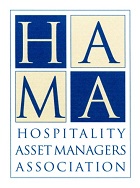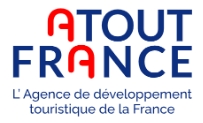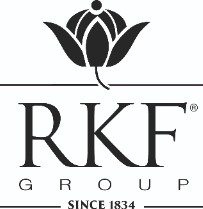
THE PENNSYLVANIA STATE UNIVERSITY'S EMMA CARLSON AND KARA BOOTH WIN 2022 HOSPITALITY ASSET MANAGERS ASSOCIATION (HAMA) STUDENT CASE COMPETITION (États-Unis)
Students Provided Insights Into "After Effects of COVID-19: Labor Challenges" |
 |
THE PENNSYLVANIA STATE UNIVERSITY'S EMMA CARLSON AND KARA BOOTH WIN 2022 HOSPITALITY ASSET MANAGERS ASSOCIATION (HAMA) STUDENT CASE COMPETITION (États-Unis)
Students Provided Insights Into "After Effects of COVID-19: Labor Challenges" |
Catégorie : Amérique du Nord et Antilles - États-Unis - Expériences exclusives
- Récompenses, remises de prix, concours
Ceci est un communiqué de presse sélectionné par notre comité éditorial et mis en ligne gratuitement le 14-04-2023
Officials of the Hospitality Asset Managers Association (“HAMA”) today announced that the 4th year students Emma Carlson and Kara Booth of The Pennsylvania State University were selected as the 2022 winners of the Seventeenth Annual HAMA Student Case Competition. The PSU team was chosen from a select field of top hotel schools.
Student teams researched and prepared a case study from a list of topics that currently impact the hotel industry, including:
- Inflation and the rising cost of labor and raw materials
- Labor challenges due to COVID
- Return of the corporate client
- B-Leisure – What is it and how does it impact our industry?
- Are high-end resorts a better investment or extended stay/limited service
portfolios?
- Compare and contrast traditional lodging products vs. “alternative” products (Airbnb, etc.) in the post-covid world
Carlson and Booth presented on the “After Effects of COVID-19: Labor Challenges,” clearly one of the largest issues the hospitality industry has faced in the past several decades. The group was mentored by Professor and Director John W. O’Neill, MAI, ISHC, Ph.D., of The Pennsylvania State University’s Hospitality Real Estate Strategy Group.
Runners-up from Pennsylvania State University included Lauren Sommers and Spencer Berkowitz addressing and comparing the relative strengths and weaknesses of various segment types, while Thomas Ryan and Donald Loebsack researched the benefits of smart technologies to a hotel’s operating model.
“What started as an opportunity to get younger adults and soon-to-be-professionals involved in hotel asset management truly has grown into one of the most sophisticated student competitions in the entire industry,” said Adam Tegge, HAMA Education Committee Chair.
“With the benefit of their advisors and access to information previously unheard of for earlier generations, the up-and-comers are bringing new and refreshing perspectives to age-old issues that have plagued hotels and hoteliers for years. With young adults like these to lead the way, I feel very confident our industry is in the best of hands.”
Working with a HAMA member and their respective university professors, student participants were required to give a multi-part presentation, complete with research paper and accompanying PowerPoint, over the course of two sessions that included initial and revised findings.
The winning team received $5,000, plus an all-expense-paid trip to HAMA’s Spring Meeting in San Francisco this April to meet and network with some of the industry’s leading hotel asset managers. In addition to the award presentation, the two-day event also hosts multiple informational sessions and group meetings to discuss the latest industry trends and share best practices.
About HAMA
HAMA members are involved in asset management, acquisition, financing and disposition of hotels and resorts and are directly responsible for making decisions concerning capital investments, renovations, asset repositioning, operational policies and management selection. Its U.S. members represent more than 3,500 hotels and resorts across every major brand, accounting for 775,000 hotel rooms, 250,000 employees, $40 billion in annual revenue and $3 billion in capital expenditures. The organization boasts an additional 245 international affiliate members, as well.
|
|






